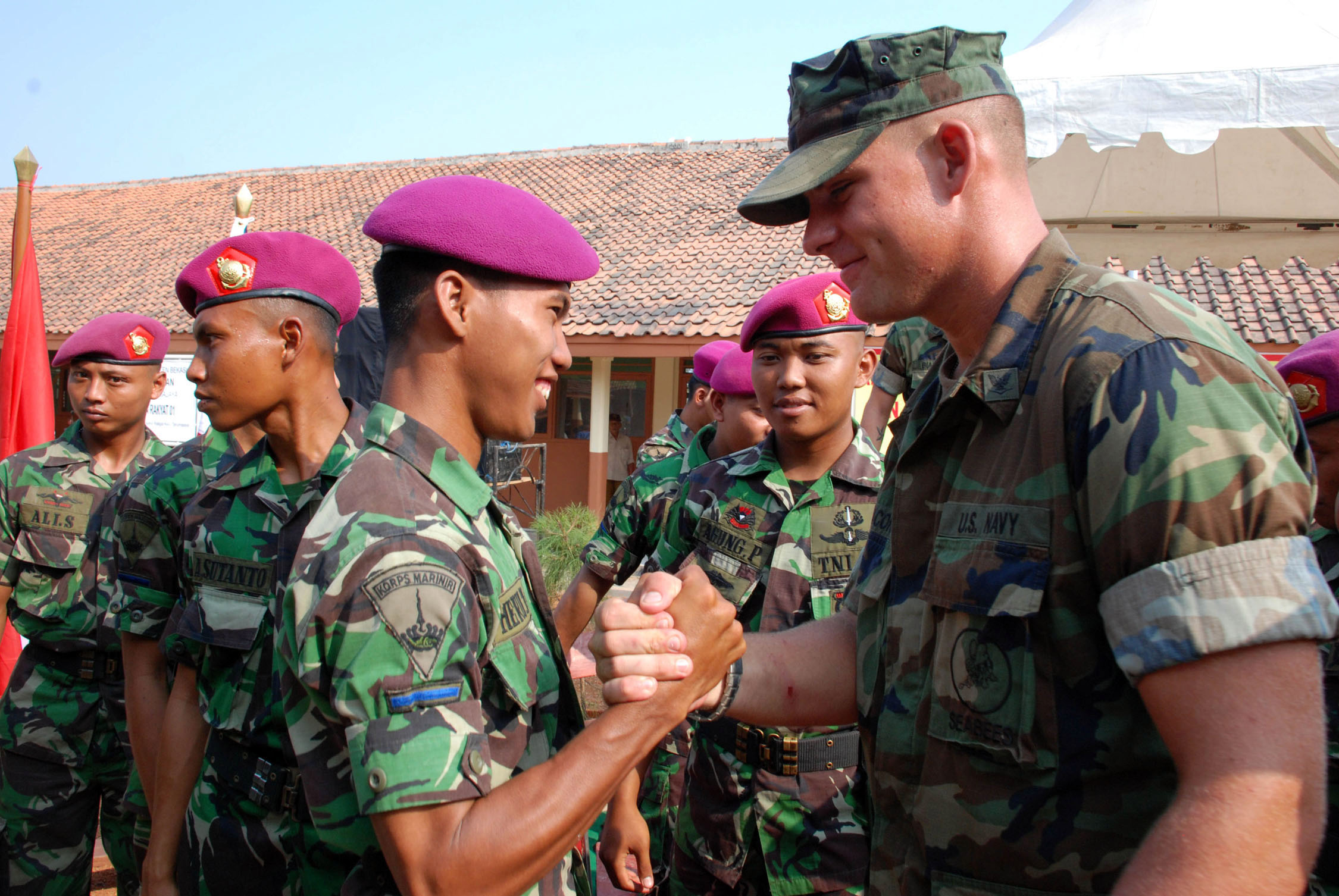 As I mentioned in last week’s ‘ASPI suggests’, there’s a useful paper from CSIS Jakarta researcher Evan Laksmana that looks at the history of US military assistance to the Indonesian armed forces (TNI) and the effect this has had on Indonesia’s ongoing defence reform process. The state of Indonesia’s military reform is of key interest to Australia, as we steadily expand defence cooperation and increasingly look to Indonesia as a key state in our Asian Century White Paper strategy. Knowing what components of US military assistance work, which don’t (and why) will help inform our military engagement under the Defence Cooperation Program.
As I mentioned in last week’s ‘ASPI suggests’, there’s a useful paper from CSIS Jakarta researcher Evan Laksmana that looks at the history of US military assistance to the Indonesian armed forces (TNI) and the effect this has had on Indonesia’s ongoing defence reform process. The state of Indonesia’s military reform is of key interest to Australia, as we steadily expand defence cooperation and increasingly look to Indonesia as a key state in our Asian Century White Paper strategy. Knowing what components of US military assistance work, which don’t (and why) will help inform our military engagement under the Defence Cooperation Program.
In dealings with post-dictatorship Indonesia, the US and Australia will naturally seek to aid the defence reform process, which includes facilitating the observance of new norms and governance, as well as helping with force modernisation. While these are sound goals in broad terms, it’s not immediately obvious how foreign military assistance can be translated into defence reform and the building of democratic civil-military relations.
The academic literature doesn’t shed much light on this topic, which is why Laksmana’s paper is a valuable contribution. It examines the historical and ideological development of US military assistance, the history of US military engagement with Indonesia (from the Cold War to today), and the implications and future challenges for Indonesia’s defence reform. He chronicles the shift in US foreign military assistance from a Cold War mentality to one aimed at promoting professionalism, democratic ideals and human rights.
The historical section of the paper is really quite useful; it explains how US military aid to Indonesia evolved and why its historical raison d’être hinders Indonesia’s defence reform today. The paper describes how, over time, Congress played a larger role in shaping military assistance, which led to the promotion of democratic civil-military relations to a central theme. As Laksmana sees it, when recipient militaries commit human rights abuses, this makes military assistance subject to criticism or even cancellation. In fact, the US placed an arms embargo on Indonesia (lifted only in 2005), which has not only made Indonesia wary of defence engagement today but has led it to source military capability from a wide range of suppliers.
Another key takeaway from the paper is that professional military education courses and the structure of capability sales did little to assist defence reform. According to Laksmana, US policymakers focused on the Indonesia Army as the principal means to stem the growth of Communism in the country so Indonesian military officers were trained in internal security, civil works and economic development. Current President Susilo Bambang Yudhoyono was one of thousands of officers sent to the US to study between the 1970s and 1990s, where he completed a number of courses including jungle warfare. Thus US military engagement, designed with a Cold War goal in mind, has further contributed to a political and internally-oriented Indonesian military, one that continues to fight, even after a decade of defence reform, to maintain a relevant domestic role today.
Looking at US-Indonesia defence engagement after the fall of Suharto, there are two points highlighted by Laksmana worth repeating here. First, by 2008, Indonesia received more US economic and security assistance than Thailand and the Philippines, both key US allies in the region. Second, the USAID Indonesia strategy for 2009 to 2014 doesn’t include significant programs designed for defence reform. While Indonesia remains important to the US, perhaps funding isn’t going where it might be needed most: enduring reform.
Overall, ‘Stirring from Beyond the Borders’ not only provides a welcome overview of TNI’s development and Indonesia’s defence reform but also, in the conclusion, grapples with practical policy recommendations for improving the effectiveness of US military assistance to Indonesia. And there’s food for thought in Laksmana’s paper for Australian defence policymakers too.
Like the United States, we’ve promoted human rights, respect for the rule of law and governance as part our military engagement with Indonesia. The result is to expose Australia to criticism when allegations are made about TNI human rights abuses in West Papua or elsewhere. As I’ve written before, there are ways to reconcile a foreign policy that respects human rights with a pragmatic defence engagement policy. And it’s worth thinking carefully about these issues again as we start to build defence ties with another military with a dark past: Myanmar.
Natalie Sambhi is an analyst at ASPI and editor of The Strategist. Image courtesy of US Navy.

